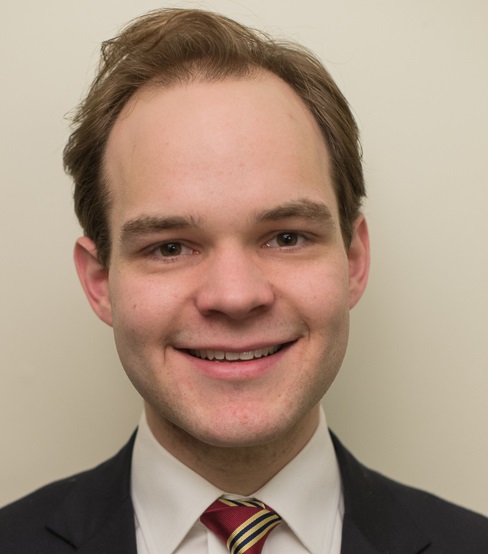State of Emergency: How the Paris Attacks Expanded France’s Police Powers
On Friday night, as attacks now attributed to ISIS unfolded across Paris, French President François Hollande declared a nationwide state of emergency. This marks the first time since the Algerian war of independence in the early 1960s that France has assumed broad police powers over the entire country. It remains unclear to what extent these expanded powers will affect France’s legal regime after the worst terrorist attack in the nation’s history.
Published by The Lawfare Institute
in Cooperation With

On Friday night, as attacks now attributed to ISIS unfolded across Paris, French President François Hollande declared a nationwide state of emergency. This marks the first time since the Algerian war of independence in the early 1960s that France has assumed broad police powers over the entire country. It remains unclear to what extent these expanded powers will affect France’s legal regime after the worst terrorist attack in the nation’s history.
Le Monde reports that the government has banned demonstrations on public roads in Paris, and that public facilities, cinemas, and stadiums are closed. Some 1,500 military personnel were mobilized to Paris.
Under French law, the President, in consultation with the Council of Ministers, may declare a state of emergency in cases of imminent danger arising from “grave attacks on the public order” or circumstances demonstrating “public calamity.”
The current state of emergency (text here) took effect just after midnight on November 14th and will expire in 12 days, unless the Parliament extends it by law. If extended, the law must include a sunset date.
Declared pursuant to public law number 55-385, a state of emergency provides extremely broad police powers. The government may impose curfews and traffic bans, control public movements, prohibit assembly and protest, and conduct warrantless searches day and night. The Minister of Interior may declare house arrests (though such measures cannot result in the creation of “camps”) and may close any meeting place (including public theaters). The government may also “control the press,” including by restricting publications of any nature, radio broadcasts, movies, and plays.
Violations of these extraordinary measures can result in a prison term not to exceed two months, a 3,750 Euro fine, or both.
Once a state of emergency exists, a subsequent decree can authorize military jurisdiction over crimes and offenses. And even after the state of emergency ends, military tribunals may continue to consider crimes whose prosecutions were referred to them.
The French government last invoked a state of emergency on November 9, 2005, but Friday marks the first time that France has declared a nationwide state of emergency since the early 1960s.
In late 2005, two teenagers of North African-descent died fleeing the police, sparking riots that resulted in 10,000 burnt cars and 3,000 arrests. After two weeks of unrest, then-president Jacques Chirac declared a state of emergency that ultimately lasted nearly two months, through January 4, 2006.
But that decree applied only to Paris and certain areas surrounding other major French cities. On Friday, President Hollande declared a nationwide state of emergency, the first since 1961.
The law authorizing a state of emergency has its roots in the Algerian war for independence (1954-1962). Following a series of attacks in 1954 by the National Liberation Front (FLN), France found it needed more latitude to conduct investigations, interrogations, searches, and arrests to dismantle revolutionary networks in Algeria. However, declaring a “state of siege” (see below) would have transferred authority to the military, creating a host of problems including the suggestion that Algeria was somehow “outside” of France, instead of integral to the Republic. The French government therefore wanted more civilian police power. Passed on April 3, 1955 (and modified as recently as March 22, 2015), the state-of-emergency law provided just that.
(Vox offers a brief history of the law in English, and French historian Sylvie Thénaut provides a more detailed review in French.)
French law provides still other emergency powers.
Under French law, the government may suspend the normal operation of laws in several ways. Article 16 of the French Constitution authorizes the President to take all necessary measures when “the institutions of the Republic, the independence of the Nation, the integrity of its territory, or the execution of its international commitments are gravely and immediately threatened, and the ordinary operation of constitutional government is interrupted.”
Meanwhile, under article 36 the government may declare a “state of siege” when a foreign war or armed insurrection puts the Nation in imminent danger. According to the French Senate, a state of siege confers extraordinary powers on the military, while a state of emergency—an intermediate step between the normal operation of law and a state of siege—grants broad police powers to civil authorities.
In the past, professors have debated the state-of-emergency law and its application.
The last time the government declared a state of emergency, French law professors debated whether such measures were necessary and proportionate to re-establish order in Parisian suburbs. Some argued that the riots did not place the Republic in imminent danger and so the state of emergency was unnecessary. Former State Councilor and French constitutional law expert, Didier Maus, concluded that although the measures taken may have been “disproportionate” they did not amount to “manifest error.” Back in 2005, the State Council rejected an application filed by professors to end the state of emergency.
Although the Constitutional Council may only review laws before their promulgation or modification, some professors believe certain provisions are “problematic,” including restrictions on freedom of the press and warrantless searches.
Under article 7 of the law, anyone subjected to emergency measures may request their removal and may institute proceedings for abuse of authority.
Although the state of emergency authorizes exceptionally broad police powers, it remains to be seen to what extent the French government invokes them and how if at all such powers may change France’s legal regime.




